You’ve probably seen the name Whop come up a lot in creator circles.
It’s being called an “all-in-one digital product platform.”
But what does that really mean?
And is it worth your time if you’re a course creator or community builder?
Let’s break it down.
Overview

Whop is a platform where creators can sell almost anything digital.
Courses, communities, software, templates, PDFs, access to private Discord servers – all in one place.
It started in 2021, built by three college friends: Jack Sharkey, Steven Schwartz, and Cameron Zoub.
And more recently funded by Iman Gadzhi.
Their goal?
Make it super easy for anyone to package and sell digital stuff online.
👉 One thing to note is that the platform mainly caters to the community builders in the “make money online niche” (which means more spammers), unlike other platforms like Skool where you find more diverse communities in diverse niches.
When you create your first Whop, it feels like you’re actually building your own business operating system.
You have the app store where you can just drag and drop different apps, and it’s like building your own SaaS product, especially if you’re a coach, consultant, and offer hybrid services.
And.
Whop is free to use (Which explains why there are a lot of spammers on the platform).
They take 3% per sale if you bring your own customer.
But if you use their marketplace and they bring the customer, they charge up to 30%.
The marketplace is growing fast.
But…
It’s not perfect.
Quick decision
What do I like about Whop? 👍
- Free to start, low risk: No monthly fee. You only pay when you make a sale. Ideal for testing new offers without worrying about upfront costs.
- Built-in storefront and course hosting: You don’t need a separate website. Whop gives you a clean storefront, course delivery tools, and even native video hosting.
- Powerful Discord integration: If your community is on Discord, this is a big win. You can sell access, assign roles automatically, and manage everything from one dashboard.
- Supports all kinds of digital products: Not just courses. You can sell eBooks, Notion templates, SaaS tools, plugins – anything digital. Great for creators with multiple income streams.
- Flexible payment options: Supports Stripe, PayPal, and even crypto. Plus, they have their own Merchant of Record system if you want to offload tax and compliance.
- API access for automation: If you’re a tech-savvy creator, you can use their API to integrate with your website, CRM, or custom workflows.
- Marketplace exposure: If you list your offer publicly, you can get new buyers through the Whop marketplace, especially in trending niches like AI tools and Discord communities.
- The mobile experience: Most platforms optimise for desktop, and mobile is an afterthought. But in Whop, the mobile view is cleaner, faster, and easier to navigate. That’s rare.
What bugs me about Whop? 👎
- Marketplace has quality issues (Big downside): When I first saw Whop’s marketplace, I was overwhelmed by numerous spammy groups and market-ish vibes. Many offerings feel like get-rich-quick schemes rather than genuine educational content. This creates an environment where quality creators might struggle to stand out among opportunistic sellers, potentially affecting the type of audience your community attracts.
- High marketplace fees: If Whop brings you a customer, they take up to 30% per sale. You’ll need to weigh that cost against the exposure you get.
- Support can be slow or inconsistent: Reddit reviews mention slow replies and confusion during disputes or payout issues. Not a dealbreaker, but something to watch.
- Interface feels tech-heavy at times: It’s built more for flexible selling than a guided community experience. If you want a plug-and-play classroom feel, this might feel a bit scattered.
- Fewer community engagement tools: No built-in gamification or forum system like Skool. You’ll need to use Discord or another tool to build actual interaction.
- Limited analytics: You get basic sales and user data, but insights into content performance, engagement, or community growth are limited right now.
Bottomline
Choose Whop if you want flexibility, no upfront costs, and plan to sell more than just courses – like Discord access, digital tools, or software. It’s perfect for creators who like control, automation, and low-risk selling.
Skip it if you’re looking for a simple, all-in-one community-first platform with built-in gamification and student engagement features.
But.
Be aware that because Whop is free to start, the marketplace has many spammy groups and market-ish vibes. Many offerings feel like get-rich-quick schemes rather than genuine educational content.
This matters a lot.
Why?
The quality of built-in audience on the platform affects who you attract to your community (through their organic discovery feature).
While you can get organic leads similar to Facebook groups, the quality of these leads may vary significantly.
Whop works best for creators who value freedom over structure.
Ease of use
When you first get into Whop, the platform feels robust but a bit overwhelming.
It’s designed as a modular system where creators can build their own digital storefront by adding various apps and features.
This flexibility is powerful, but comes with a learning curve.
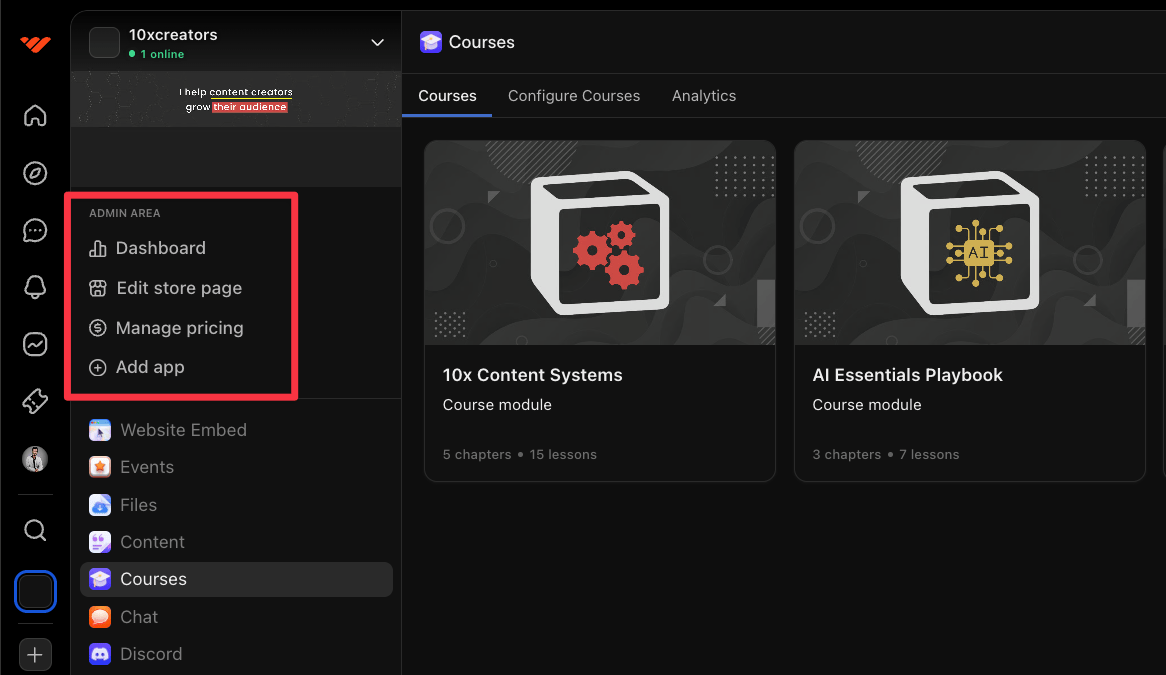
The main dashboard gives you access to everything – product management, community tools, store page, and the app store.
But without clear guidance, new users often struggle to figure out where to start.
At times, you feel like screaming“I don’t need 20+ apps right away. All I need is a simple path to get started.”
Setting up your first product requires multiple steps and decisions that aren’t always intuitive.
What’s more frustrating?
The documentation doesn’t always match the current interface, which has gone through recent updates.
I found myself clicking around trying to find basic functions that should be more accessible.
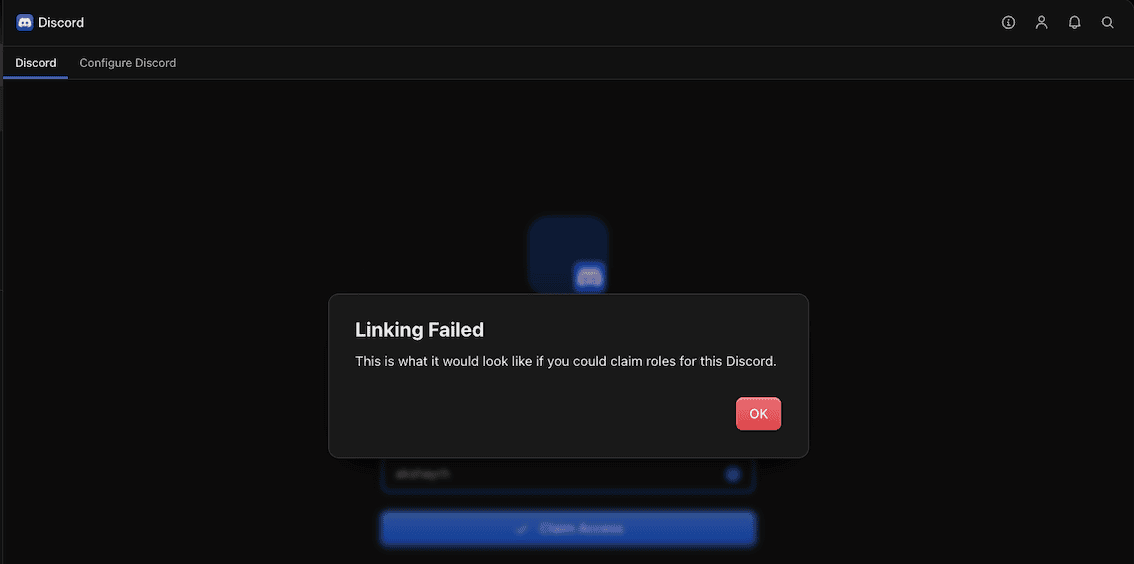
Even when I was trying to connect my Discord server (which should be straightforward) it threw a weird error message (clueless!)
The good news?
Once you get past the initial setup phase, managing your products becomes more straightforward.
👉 When you compare its interface to that of say Skool, it feels very cluttered.
🏆 Bottomline: While Whop offers impressive flexibility, its interface prioritizes options over intuitive design. First-time users face a steeper learning curve compared to more polished alternatives like Skool.
Course and content delivery
Whop lets you create and deliver online courses directly from its dashboard.
It has an app called “Courses” that’s simple to use.
You can upload videos, PDFs, slides, or links and organise them into chapters and lessons.
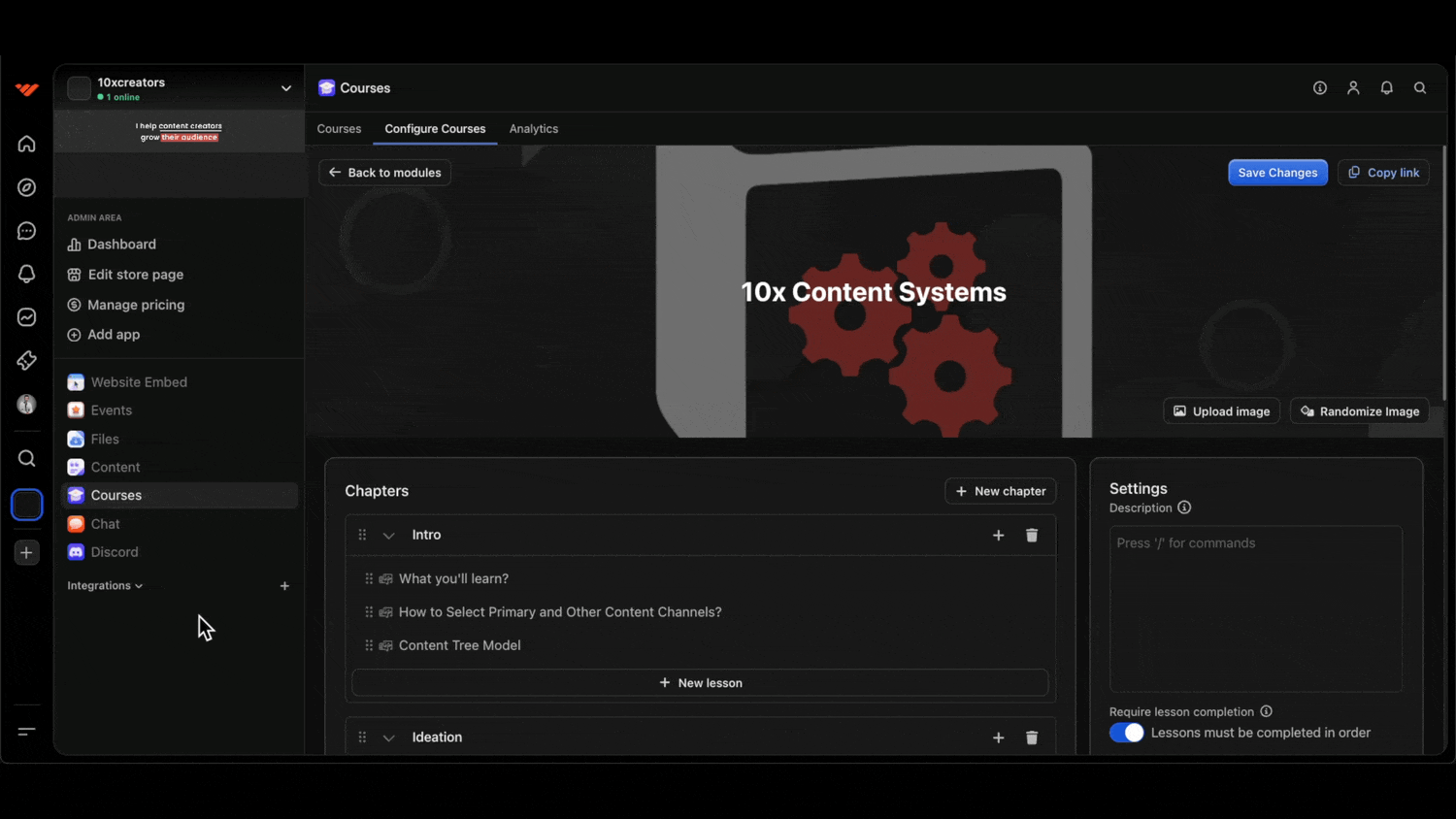
You can also embed files, or code blocks to support technical content. This makes it useful for creators in tech, AI, or no-code education.
And, there’s no need to use an external hosting tool. Videos play directly inside the platform. That’s a big plus if you don’t want to deal with YouTube, Vimeo, or Loom.
Upload, title your lesson, write a description, and hit save changes. It’s all pretty seamless.
The course layout is clean and mobile-friendly.
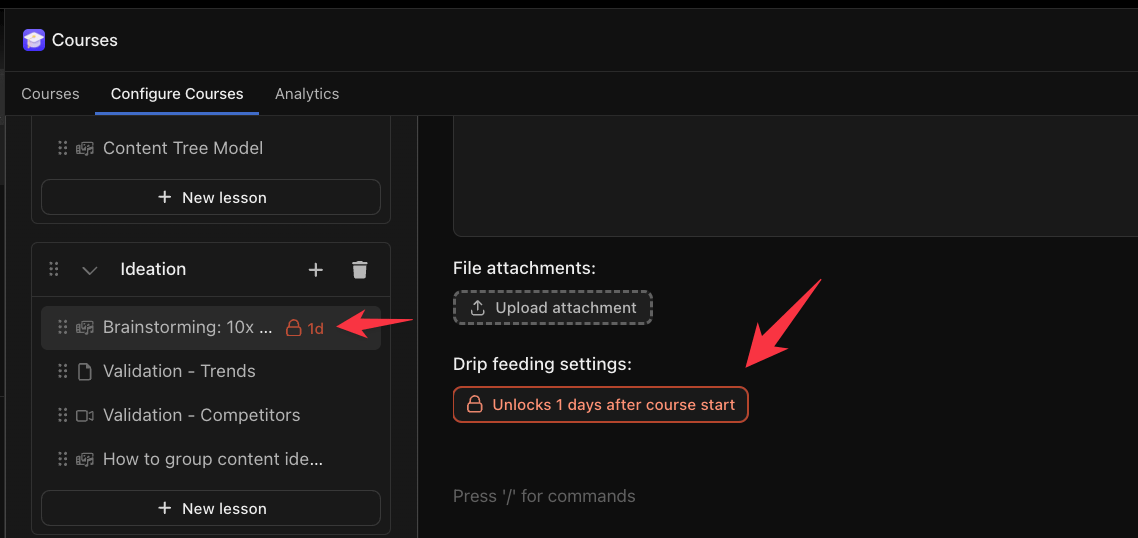
Students can move through chapters one by one, or you can lock lessons if you want structured progress.
But if you’re coming from platforms like Teachable or Thinkific, you’ll notice some limitations.
Whop doesn’t offer detailed progress tracking, or deep student analytics.

You get basic stats, but not much insight into how people interact with each module.
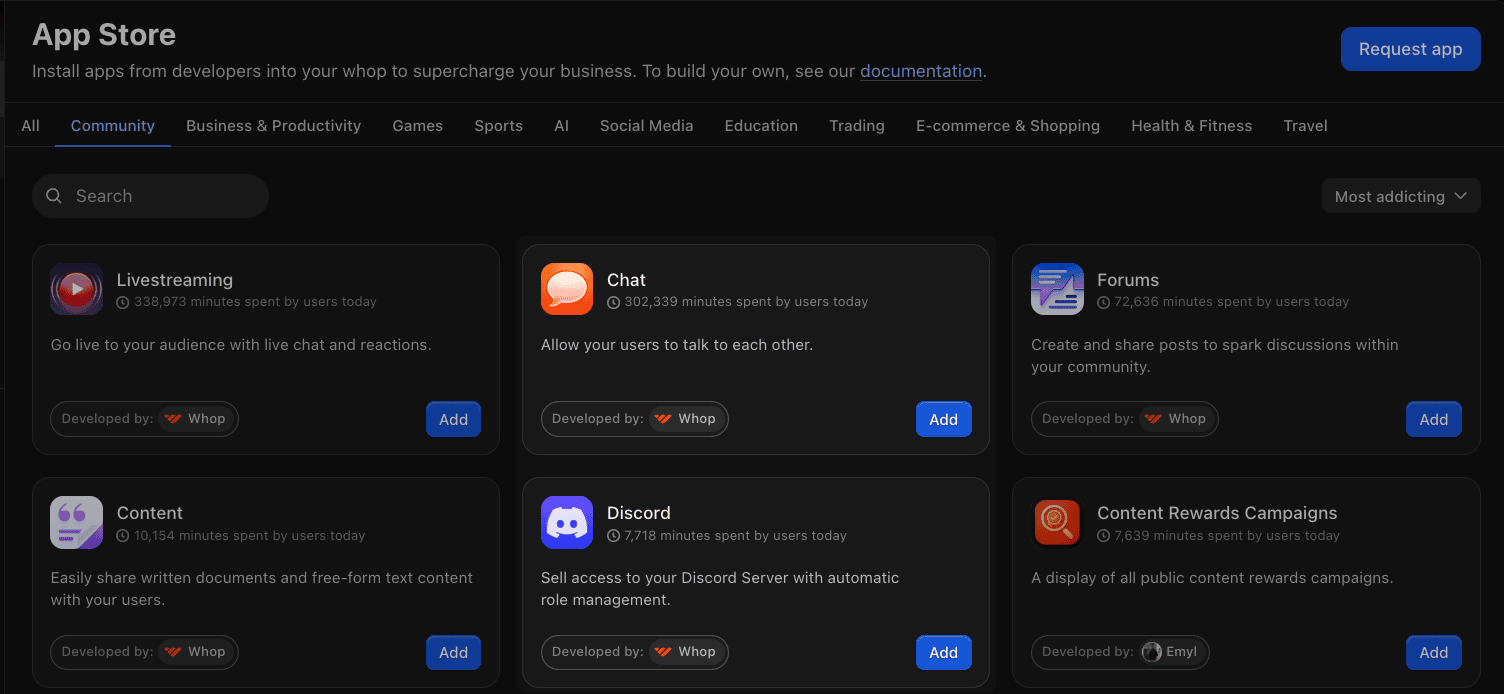
👎 There’s also no built-in commenting under course lessons. If you want student discussions, you’ll need to connect a Discord server or use the “Chat” app.
For creators who like quick setup and don’t need fancy learning paths or deep analytics, Whop gets the job done.
But for serious educators running multi-course academies or certification programmes, Whop might feel a bit light.
If that’s the case, you may want to look at dedicated course creation platforms. I prefer Kajabi in this regard.
🏆 Bottomline: Whop excels at lightweight course delivery with excellent video hosting capabilities, though it falls short when it comes to tracking detailed student progress or building comprehensive learning systems with advanced analytics.
Community engagement
Whop lets you build a community inside your storefront.
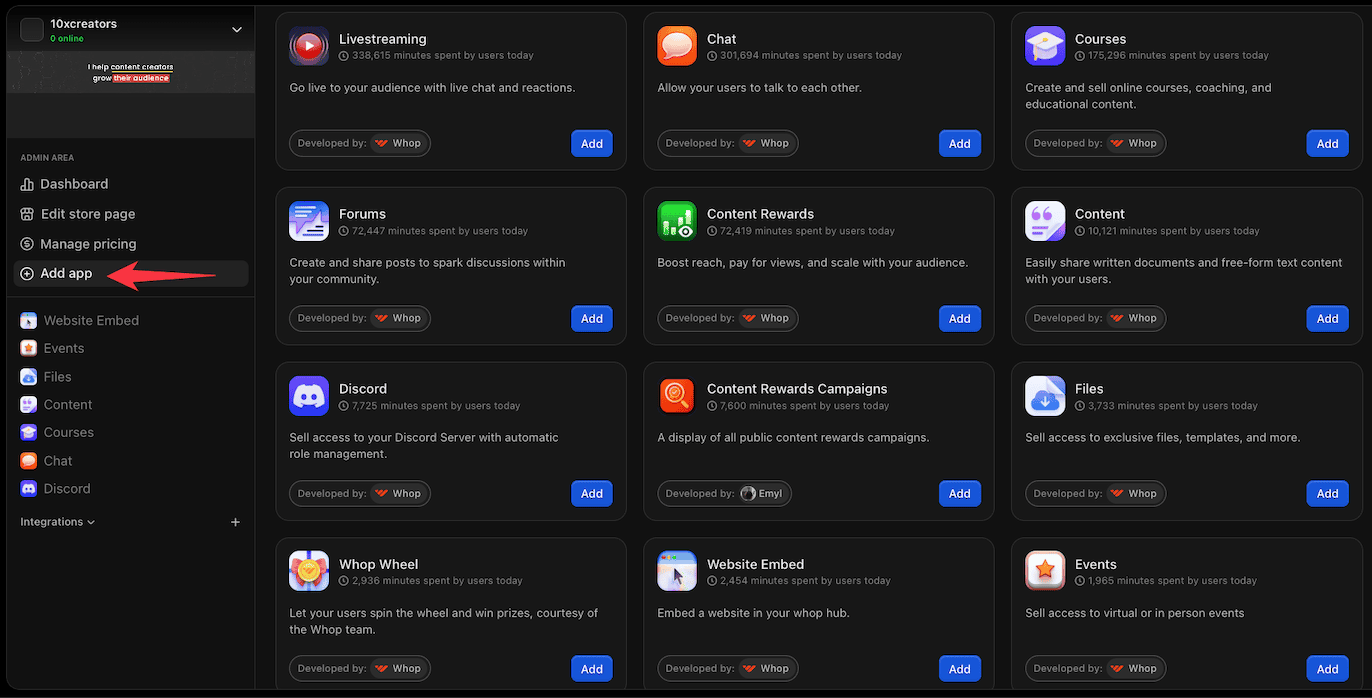
You add apps like Chat, Forums, Events, and even Video Calls.
It takes minutes to set up and feels clean and structured.
For creators who run live sessions or webinars, it supports livestreams and community events.
But if you’re expecting gamification, progress tracking, etc. you may want to look at dedicated community platforms. I personally like Skool (see my comparison here).
But here’s the best part about Whop:
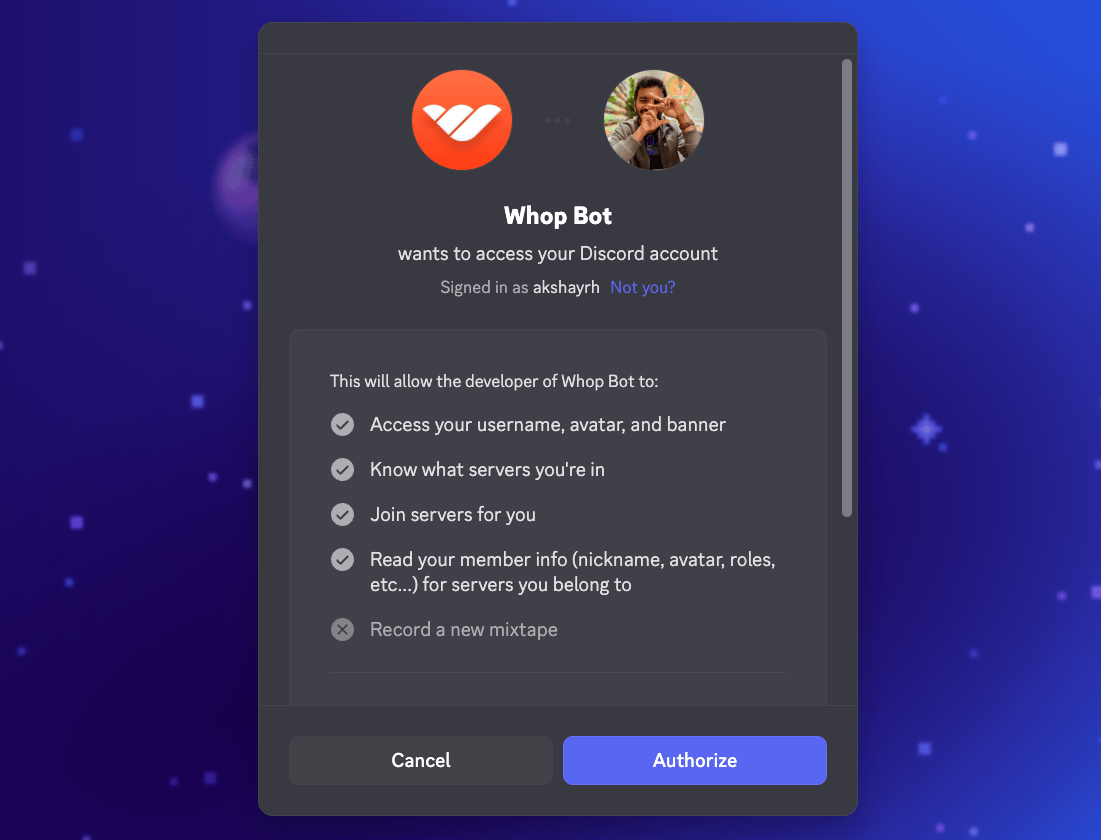
If you use Discord already, Whop’s integration is a major strength.
It adds automation and payment controls to your server, handling access permissions based on purchases. Members who buy your products automatically get the right Discord roles without manual verification.
🏆 Bottomline: In my experience, Whop works best for creators who need structured group access and payment control – not a rich, community-first experience (unless using Discord).
Monetization and payments
Whop lets you start selling without paying a penny upfront.
There’s no monthly fee.
You only pay when someone buys something. That’s super creator-friendly.
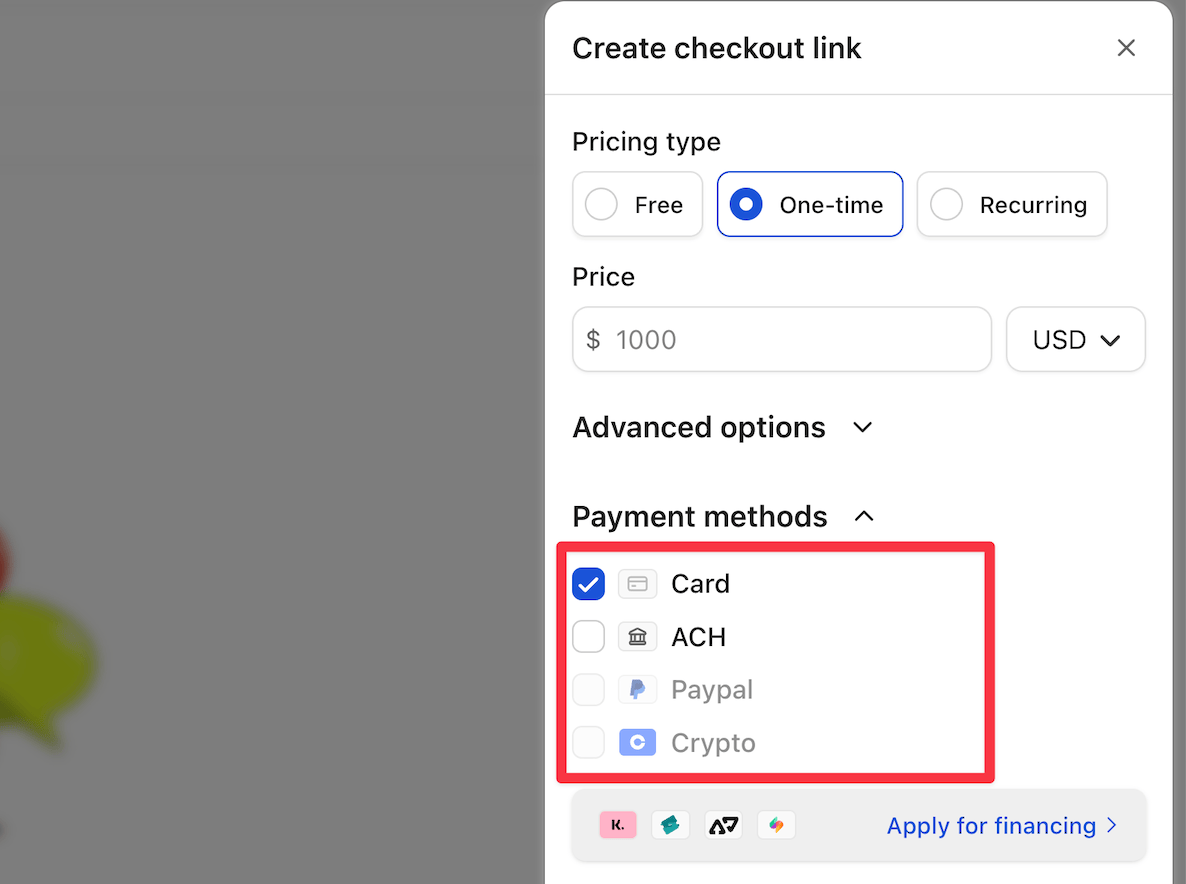
Do you want to sell one-time products? Monthly subscriptions? Lifetime access?
You can do it all.
And it works with Stripe, PayPal, and crypto payments.
The basic transaction fee is just 3%, which beats most platforms. You’ll still pay the normal Stripe or PayPal fees on top.
If someone finds you through Whop’s marketplace, they take a 30% cut. That’s a big chunk. But hey, it’s traffic you didn’t have to work for.
Do you need free trials? Discount codes? Affiliate tracking? It’s all built in.
Whop even lets you create an affiliate program for your own offers.
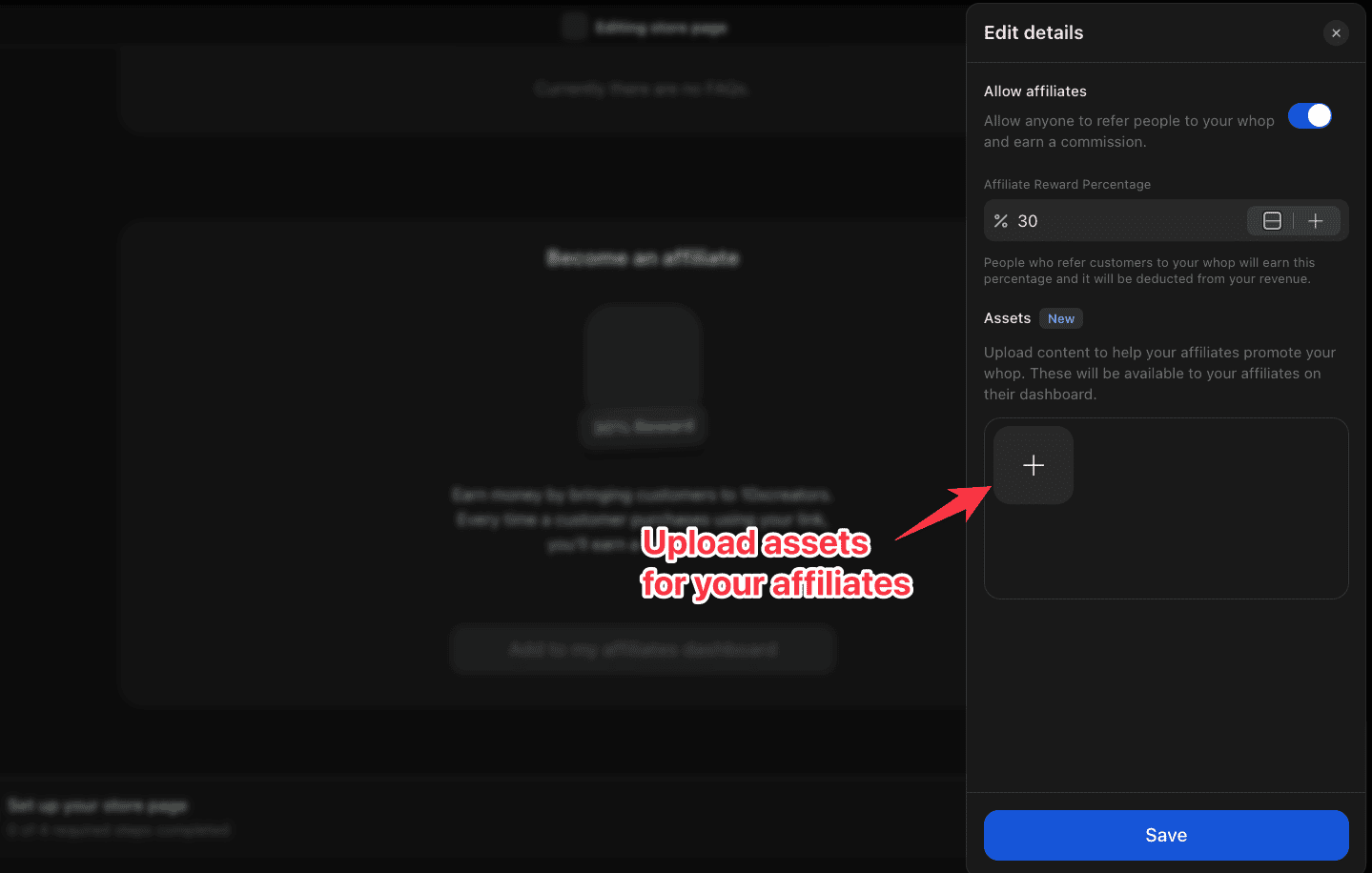
Plus, they offer recurring 30% commissions if you refer people to Whop itself.
🏆 Bottomline: Whop offers excellent value for creators seeking low-risk selling options with flexible pricing models, though users should be cautious about the substantial marketplace fees and additional charges applied to expedited payouts.
Whop’s payouts
Their payouts are flexible. You can withdraw through ACH, crypto, or your Stripe account.
But if you want instant payouts, there’s an extra 10% fee. Invoice-based payments and tax handling also come with small service fees.
One thing to note, is that Whop doesn’t handle VAT automatically like that of Skool which can add a bit to your fin-admin burden.
👉 Some users report delays in payouts (e.g., over 25 days delayed), unresponsive or automated customer support, and dissatisfaction with dispute resolution processes. There are accusations that Whop sides with sellers in disputes even when buyers provide clear evidence.
Customization and integrations
Whop provides extensive customization options to shape your brand identity and streamline your workflow.
Without any coding knowledge, you can personalize your storefront appearance, generate branded receipts, and develop sophisticated affiliate campaigns.
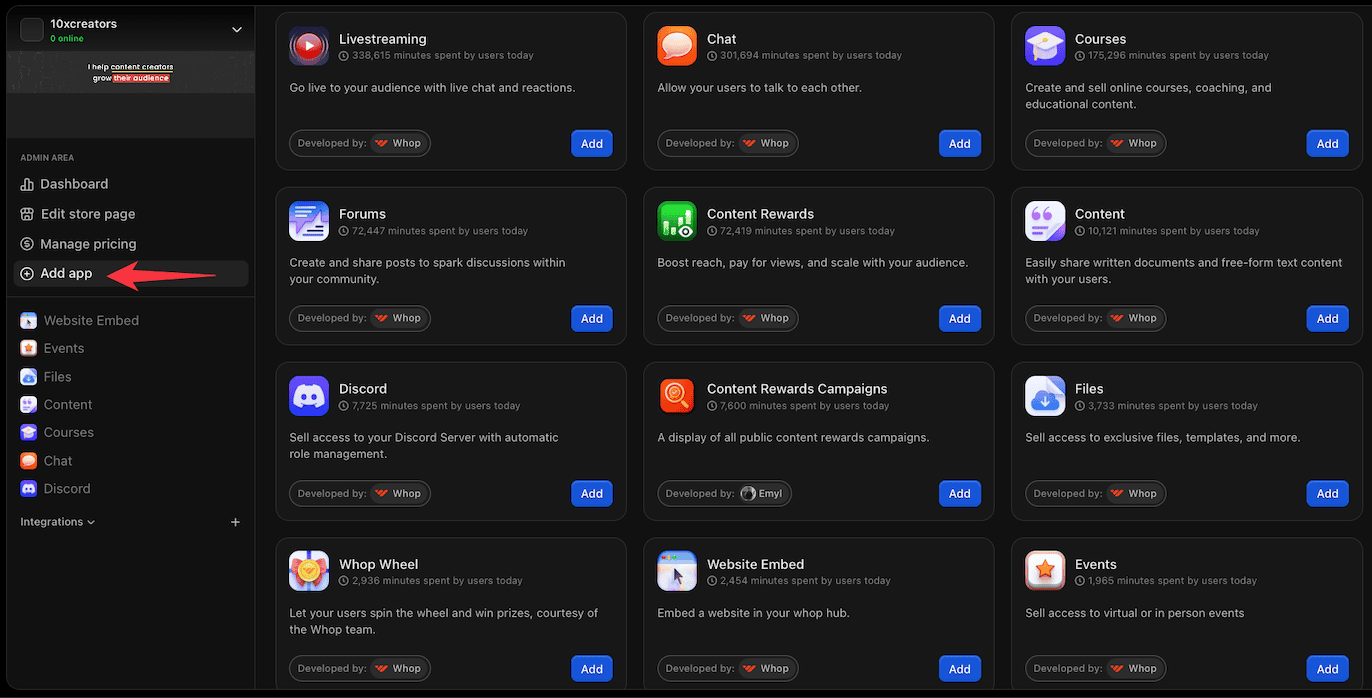
Whop offers a diverse app ecosystem for chat, forums, revenue bounties, and affiliate management.
The platform has tons of apps; almost too many. If you’re new to online platforms, figuring out which apps to use can feel overwhelming.
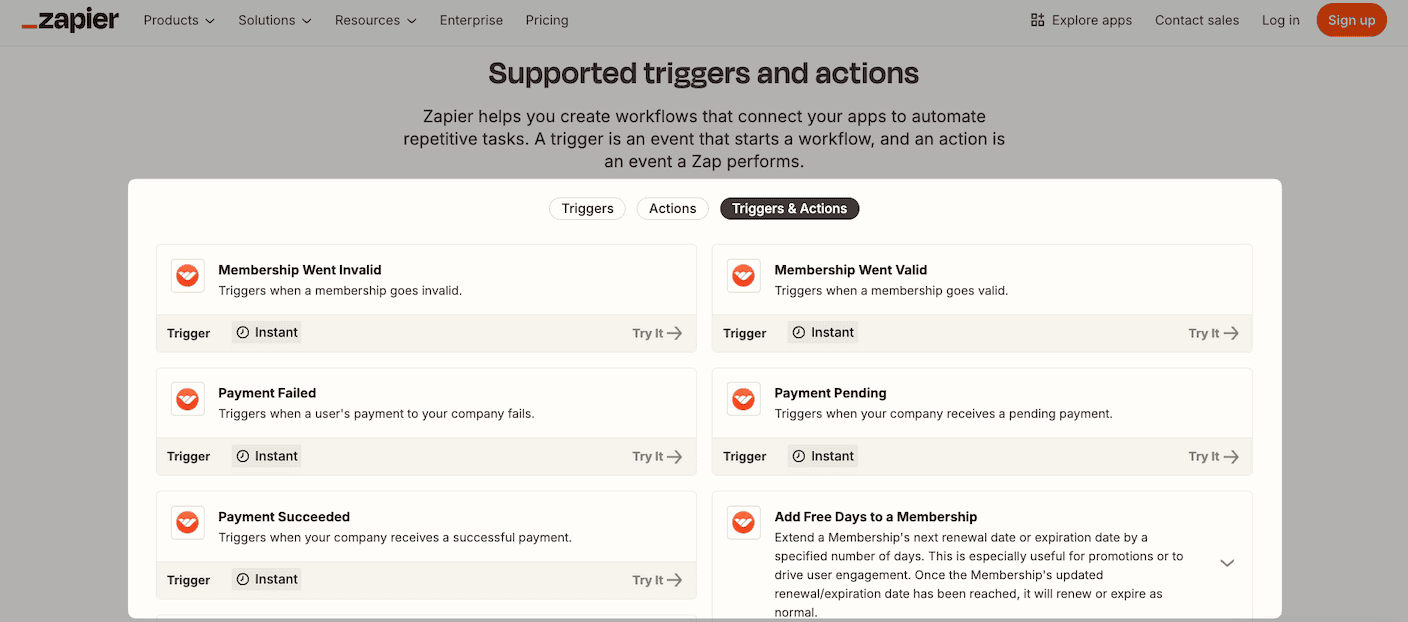
For integrations, Whop works seamlessly with:
- Zapier
- CRM solutions like HubSpot
- Email platforms
- Shopify
These connections enable powerful automations like adding customers to email lists or generating invoices automatically.
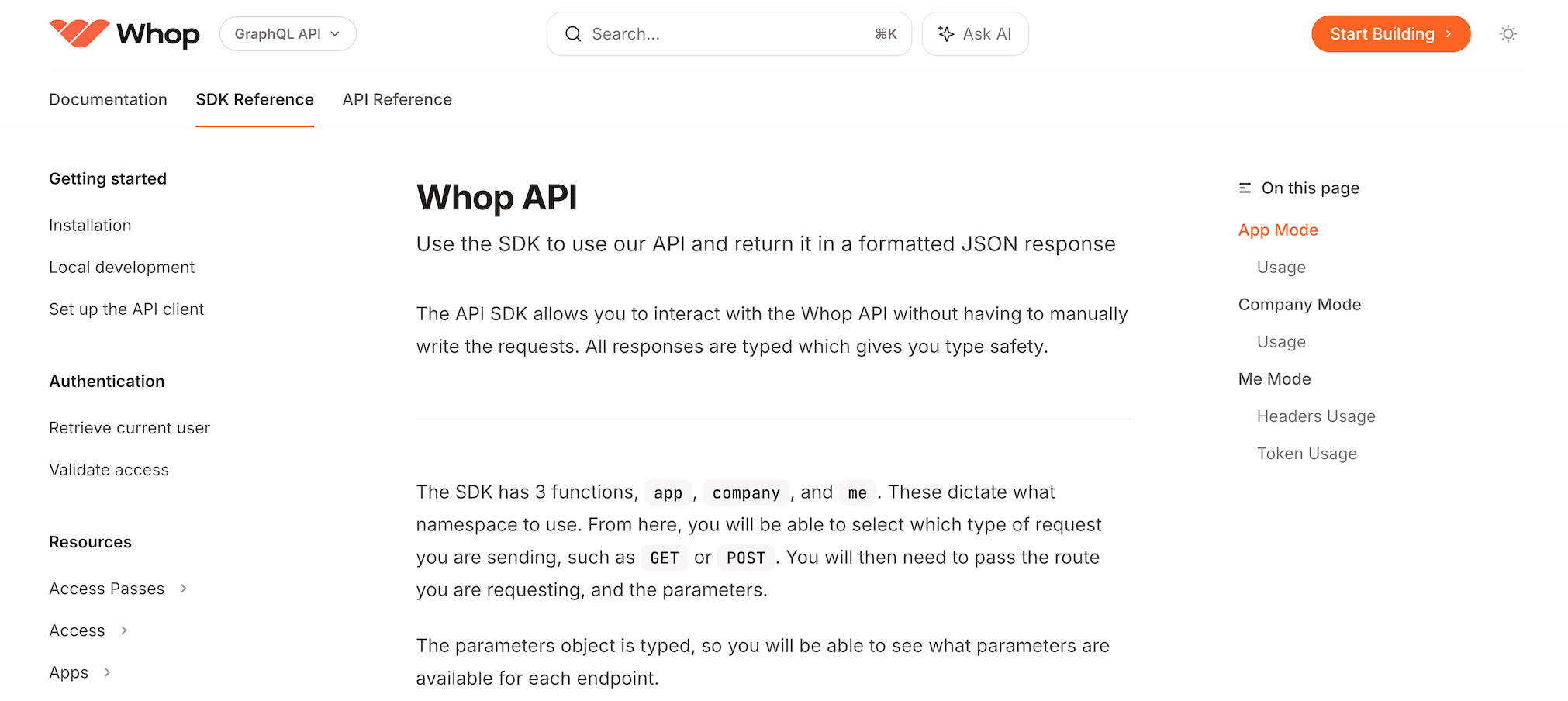
Tech-savvy creators can use Whop’s API and webhooks to:
- Embed checkout on external websites
- Automate Discord role assignments
- Connect with your own systems
Want to embed your own software (like an AI app)?
You can do it with a URL, but you’ll need basic understanding of embed logic and iframes.
The mobile app supports livestreams and video content on both Android and iOS.
Despite occasional performance hiccups, it delivers a smooth on-the-go experience.
In summary, Whop provides robust customization options from user-friendly no-code solutions to developer-level API access. Its main limitations? No complete white-label rebranding and limited UI customization. The mobile experience works well but isn’t as polished as the desktop version.
👉 Whop is ideal if you want to mix and match tools with ease and scale your system over time. But if you need deep white-label or design freedom, you may hit some limits here.
Mobile app
Whop takes mobile experience very seriously (unlike others).
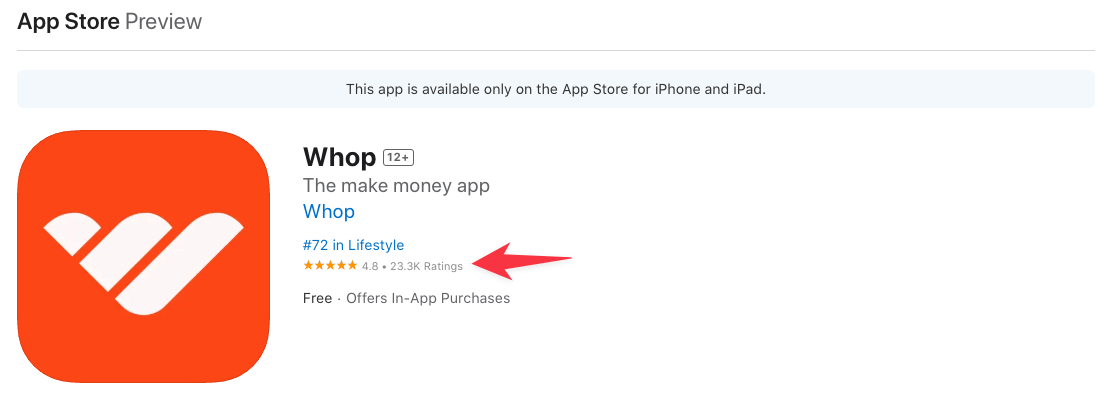
Their iOS app boasts an impressive 4.8-star rating from 23k reviews – something rarely seen in this space.
They clearly understand that a good mobile app is essential for community engagement.
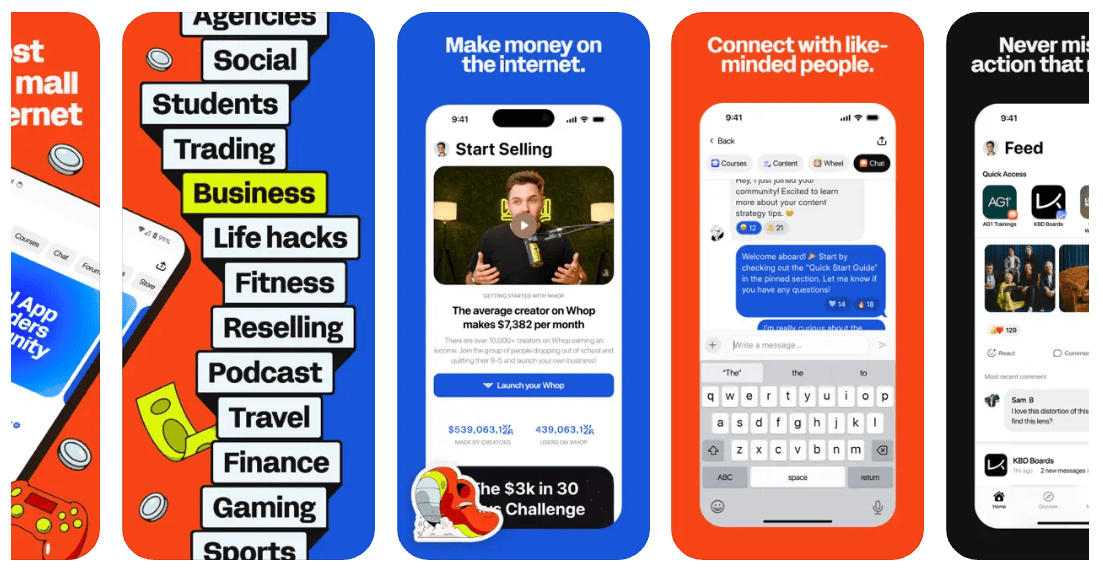
The mobile apps are so well-designed that you might actually prefer using them over the desktop version.
There have been some recent issues with glitchy video playback and app freezing during course navigation.
But overall, their mobile app is polished and the development team actively works on adding new features and updates.
However, the biggest issue with Whop is the quality of users on the platform. The communities and chat areas have turned into a breeding ground for spammers and scammers.
Even though Whop offers community guidelines and moderator roles, they need to add stronger moderation features ASAP to fix this problem.
The platform must step up its game in protecting genuine users from these bad actors.
Final verdict
Whop is a solid platform for creators who want freedom, flexibility, and low-risk selling (without monthly fee).
It shines when you want to bundle different digital products, courses, templates, Discord access, or even SaaS tools – all under one storefront. With no monthly fees, built-in video hosting, and powerful integrations.
The setup is smooth once you get the hang of it.
And the native Discord connection is a big win if that’s where your community lives. The marketplace can bring in new customers, but the 30% cut on those sales is something to think about.
It’s not perfect.
If you need deep community engagement features, gamification, or detailed student tracking, you might feel limited.
It’s also not ideal if you’re looking for a hand-holding experience or a classroom-style layout like Skool or Teachable.
Use Whop if:
- You sell more than just courses
- You want low setup costs and full control
- You’re comfortable exploring apps and integrations
Skip it if:
- You run a coaching program or tight-knit community that needs built-in forums and engagement tools
- You want plug-and-play learning paths with advanced analytics
Whop is great for digital entrepreneurs, tech educators, and creators who want to grow without platform lock-in.







